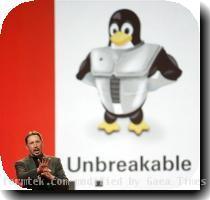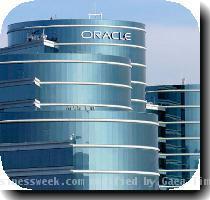European regulators object to Sun-Oracle deal; Oracle to fight “profound misunderstanding”
By Jordan Robertson, APMonday, November 9, 2009
EU objects to Oracle’s takeover of Sun
SAN FRANCISCO — European antitrust regulators have formally objected to Sun Microsystems Inc.’s planned $7.4 billion sale to Oracle Corp., escalating a battle over a deal that has already been cleared in the U.S.
The so-called “statement of objections” that Sun received Monday from the European Commission isn’t entirely surprising, since the commission already expressed concerns about possible harm to the database market from an Oracle-Sun tie-up when it launched a formal antitrust probe of the deal in September.
The objection, though, ratchets up tension about the fate of the deal, which Sun badly needs to go through, and presents an interesting challenge for the Obama administration, which has vowed to vigorously pursue antitrust cases and now finds itself at odds with European regulators.
Uncertainty about the deal, which both companies had hoped would close this summer, has wounded Sun, which is losing market share in computer servers to rivals like IBM Corp. and Hewlett-Packard Co. Last week Sun revealed that it lost $120 million in the quarter ended Sept. 27.
In a filing with the Securities and Exchange Commission Monday, Sun stressed that European regulators’ objections are the result only of a preliminary investigation and that the commission hasn’t made its final decision about the matter. Sun and Oracle are allowed to argue their case to the commission, which Oracle said it will do to correct what it called a “profound misunderstanding” about the companies’ markets.
The EU responded Tuesday that such criticism was “facile and superficial.” EU spokesman Jonathan Todd said regulators were obliged to investigate “a whole series of complaints from customers of these companies expressing their concerns” that Oracle’s purchase of open-source database software MySQL could eliminate a crucial rival.
The EU executive has until Jan. 19, 2010, to decide whether to clear or block the deal. Todd would not confirm that regulators had sent formal charges to Oracle — a rare move that signals that the EU sees major antitrust problems with a takeover and could forbid it going ahead.
Investors appear skeptical about the deal’s chances.
Sun’s stock has been stuck below Oracle’s $9.50-per-share offer for the company. On Monday it edged up 6 cents to $8.30 in extended trading as Oracle released comments signaling its willingness to fight to keep the transaction in its current form alive.
The European Commission has said it is worried that businesses could have fewer choices and see higher prices if Oracle, the world’s biggest proprietary database company, swallows Sun, whose MySQL division makes the leading open-source database.
Oracle said in a statement that the commission’s objection “reveals a profound misunderstanding of both database competition and open source dynamics.”
“It is well understood by those knowledgeable about open source software that because MySQL is open source, it cannot be controlled by anyone. That is the whole point of open source,” the Redwood Shores, Calif.-based company said.
Open-source software refers to programs whose underlying code is distributed for free on the Internet, so people can make it better and share their improvements with others.
Oracle noted that there are “at least eight strong players” in the database market, and that Oracle and MySQL offer “very different database products.”
“There is no basis in European law for objecting to a merger of two among eight firms selling differentiated products,” Oracle said. “Mergers like this occur regularly and have not been prohibited by United States or European regulators in decades.”
The U.S. Department of Justice, which cleared the acquisition in August, reiterated Monday that it stands by its earlier assessment that the combination of the two companies is “unlikely to be anticompetitive,” primarily because there are a variety of competitors.
“At this point in its process, it appears that the (European Commission) holds a different view,” the agency said. “We remain hopeful that the parties and the EC will reach a speedy resolution that benefits consumers in the commission’s jurisdiction.”
One possibility is that Santa Clara, Calif.-based Sun might be forced to sell or spin off MySQL, a company it bought for $1 billion last year.
AP Business Writer Aoife White in Brussels contributed to this story.
Tags: California, Computing And Information Technology, Government Regulations, Industry Regulation, North America, Open Source, San Francisco, Software, United States

